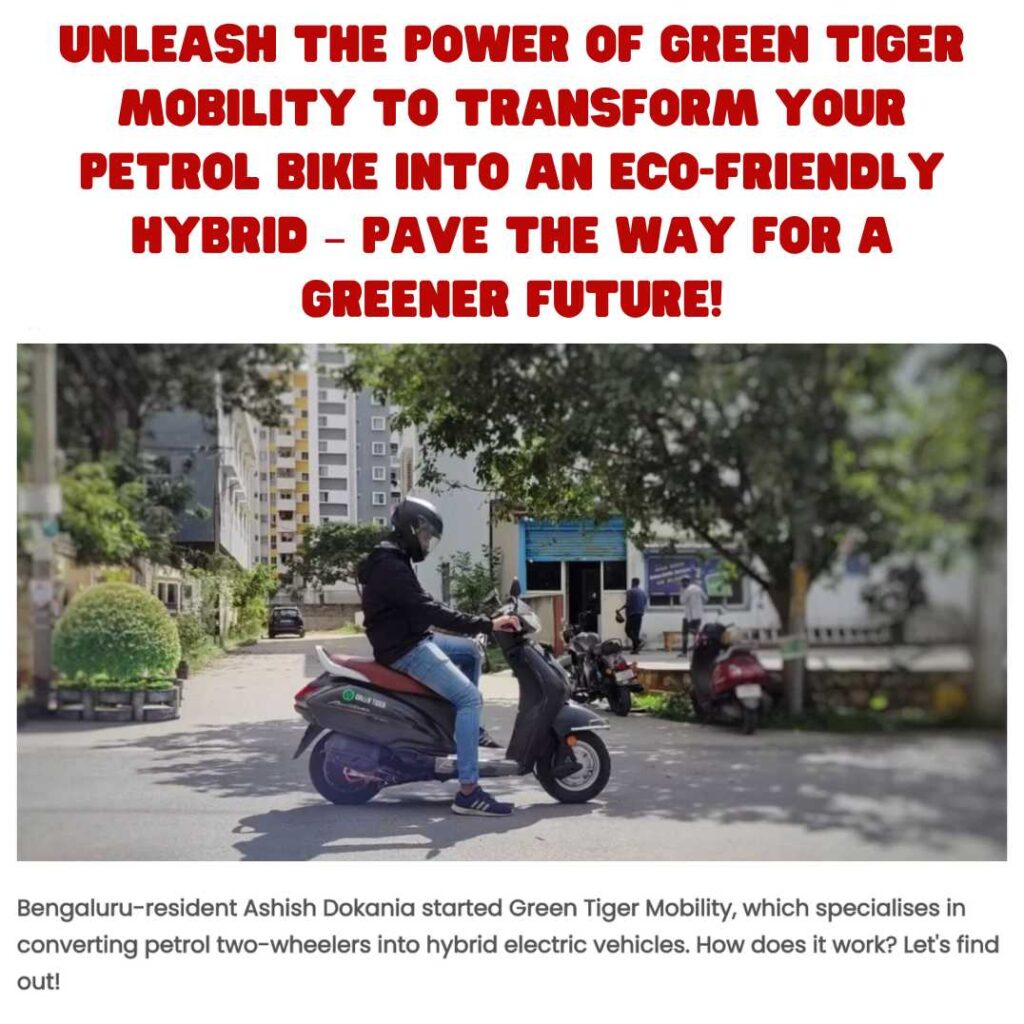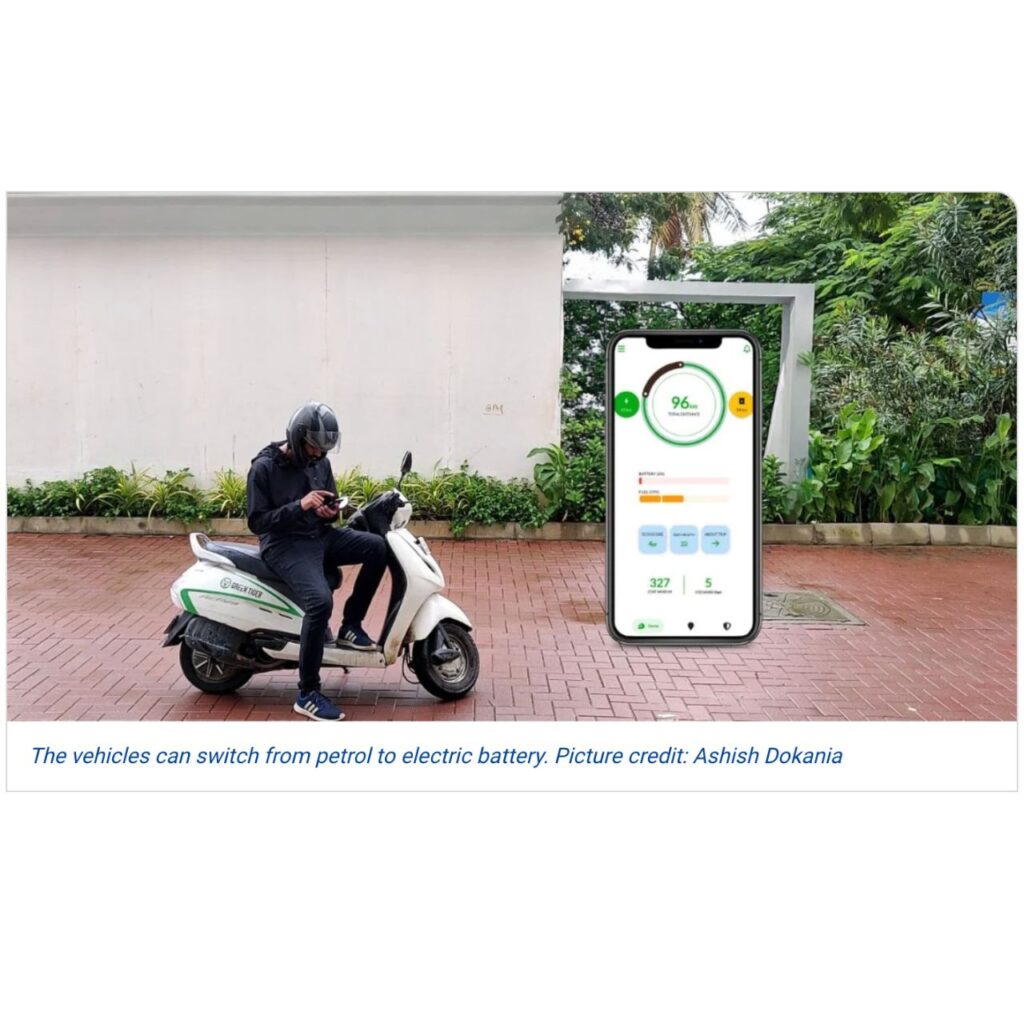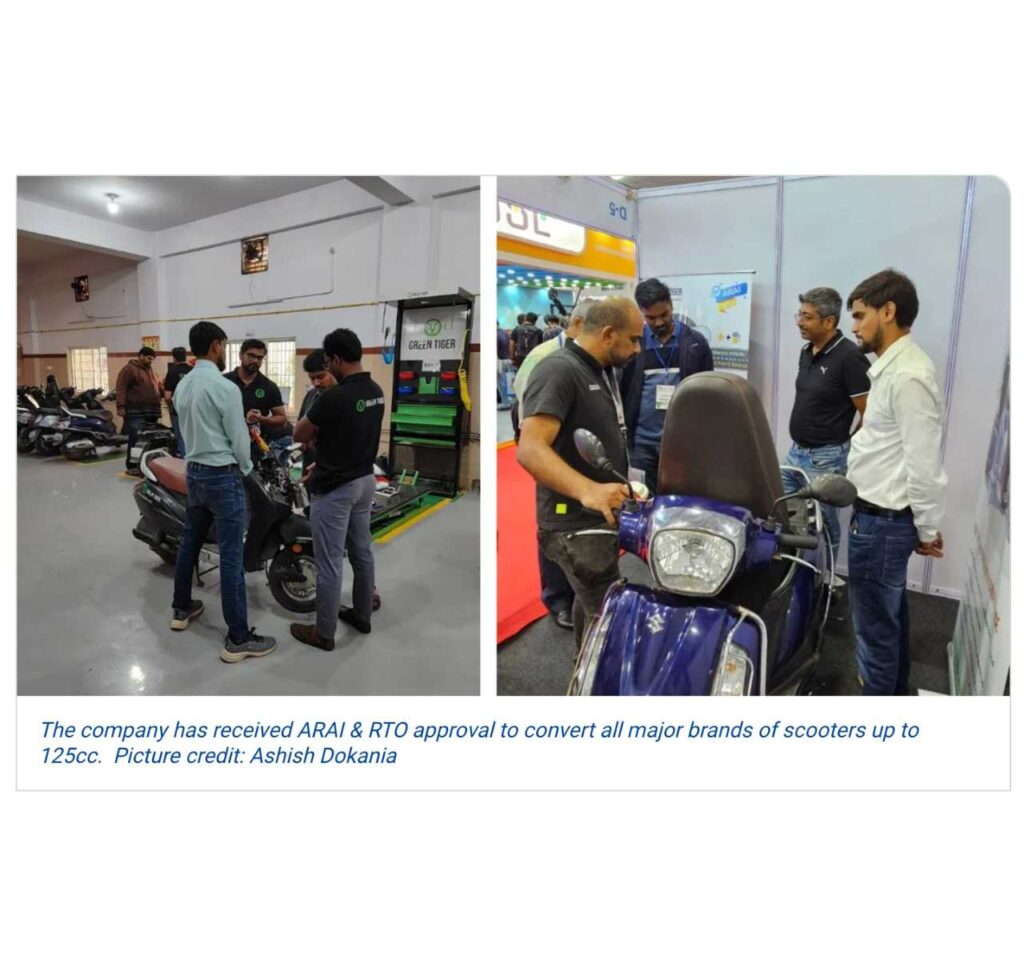Introduction:
In an era where sustainability takes center stage, India emerges as a hub for groundbreaking eco-friendly solutions. Among these innovations is Bengaluru-based Green Tiger Mobility, pioneering the conversion of conventional petrol two-wheelers into hybrid electric vehicles (EVs). Join us in this exploration of Green Tiger Mobility’s journey, the visionary behind it, and the game-changing concept of bidirectional mobility.
The Visionary Behind Green Tiger Mobility:
Hailing from a small town in Bihar, Ashish Dokania, the founder of Green Tiger Mobility, embodies an entrepreneurial spirit that took root in his youth. Despite a setback with a business venture in Bengaluru at the age of 21, Ashish’s resolve to create a business for positive societal impact only strengthened. After pursuing an MBA and gaining experience in the banking sector, Ashish’s exposure to renewable energy projects became the catalyst for Green Tiger Mobility.
The Genesis of Green Tiger Mobility:
By 2015, Ashish had garnered significant experience in the renewable energy sector, recognizing a potential market gap in the reliability of renewable energy for EVs. This realization gave birth to Green Tiger Mobility, a company aiming to bridge the growing demand for EVs with the unpredictable nature of renewable energy.
The Hybrid Conversion Process:
Green Tiger Mobility’s revolutionary approach involves converting existing petrol scooters into hybrid models, allowing users to effortlessly switch between petrol and electric power. Unlike traditional EVs, users need not fret about locating charging stations, thanks to the standby petrol engine. The conversion process entails relocating the entire electric powertrain to ensure a balanced and stable ride.
Features and Benefits:

Converted scooters are equipped with a controller and a smart display, offering real-time information on battery levels and the current mode of operation. This not only enhances the user experience but also alleviates the range anxiety associated with EVs. With a daily usage range of 50 to 60 km, the hybrid model meets the needs of typical riders, providing a reliable petrol engine for longer journeys and reducing daily petrol expenses.
Economic and Environmental Impact:
Green Tiger Mobility’s commitment to green mobility extends beyond environmental consciousness to economic viability. By providing a reliable petrol engine for occasional longer trips, users can realize significant savings on daily petrol expenses. The conversion cost, including the battery and charger, amounts to Rs 55,000, with an optional Rs 5,000 upgrade for the smart system. This upgrade grants users access to a comprehensive telematics system, featuring accident alerts and vehicle disability notifications.
Future Prospects:
Currently operational in Bengaluru, Green Tiger Mobility has successfully converted over 50 vehicles, securing approvals from ARAI & RTO to convert scooters up to 125cc from major brands. The company is poised for expansion, including the conversion of motorcycles, with plans for a launch later this year. With 30 conversion orders in November 2023 alone, Green Tiger Mobility is gaining momentum and actively contributing to a greener and more sustainable future.
Conclusion:
Green Tiger Mobility’s innovative bidirectional mobility concept showcases the potential for transforming existing petrol vehicles into eco-friendly alternatives. In a world moving towards a sustainable future, initiatives like these play a crucial role in making green mobility accessible to a broader audience. The success and growing demand for Green Tiger Mobility’s conversions underscore that hybrid EVs are not merely a solution to range anxiety but a pivotal player in the evolution of sustainable transportation. Ride towards a greener tomorrow with Green Tiger Mobility.



















What do you think?
It is nice to know your opinion. Leave a comment.